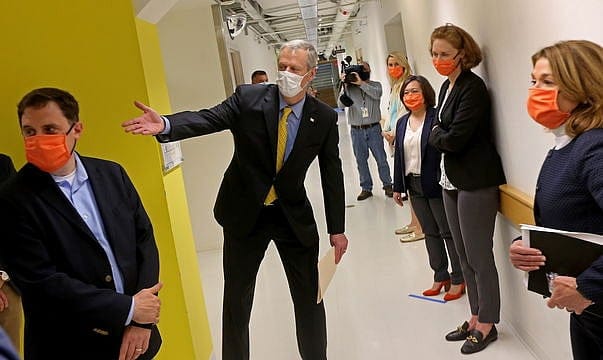Massachusetts Governor Declines Comment on Lawsuit Claiming He Has Overreached During Coronavirus Emergency

Governor Charlie Baker declined to comment today on a lawsuit claiming he has exceeded his authority under Massachusetts law by ordering the coronavirus emergency shutdowns.
"Normally, we don't really speak to lawsuits when they're in process. Obviously, we're aware of the fact that it was filed. When people issue decisions, we usually comment on that. But I don't usually comment on pending litigation," Baker said during a coronavirus press conference Saturday, June 6, answering a reporter's question.

